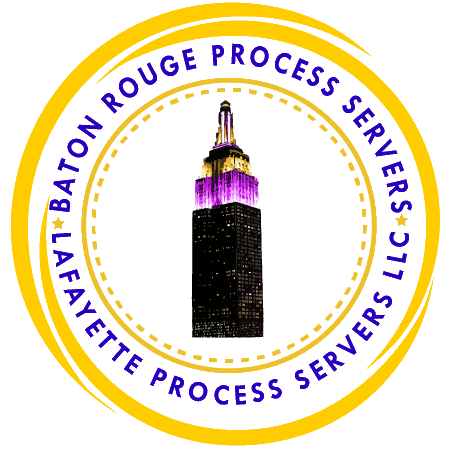In the realm of legal proceedings, locating individuals can be a daunting task. This is where skip tracing comes into play.

Skip tracing is a method used to find people who are hard to locate. It’s a crucial tool for process servers, who are tasked with delivering legal documents to individuals involved in a case.
But why is skip tracing so important? It’s simple. Without successful location of the involved parties, legal processes can be delayed or even invalidated.
This article aims to shed light on the art of skip tracing within the service process. We’ll delve into the techniques used, the role of a process server, and the legal implications of this practice.
Whether you’re a legal professional, a process server, or simply curious about the process, this guide will provide a comprehensive understanding of skip tracing. Let’s dive in.
Understanding Skip Tracing in the Service Process
Skip tracing is a systematic approach to locate individuals who are difficult to find. It’s often used when someone has skipped town, hence the term “skip tracing”.
The process involves gathering as much information as possible about the person. This information is then analyzed, reduced, and verified.
The goal is to locate the individual for legal purposes. This could be for serving court documents, collecting a debt, or even locating a missing person.
Here are some common reasons why individuals might be hard to locate:
- Intentional evasion
- Outdated contact information
- Lack of a permanent address
- Use of aliases
The Role of a Process Server
A process server plays a crucial role in the legal system. Their primary task is to deliver legal documents to individuals involved in a court case.
Skip tracing becomes a vital skill for process servers when individuals are intentionally evasive or hard to locate. It helps ensure that the legal process runs smoothly and efficiently.
Legal Implications and Ethical Considerations
Skip tracing isn’t a free-for-all. There are legal and ethical boundaries that must be respected.
For instance, privacy laws dictate what information can be accessed and how it can be used. Understanding these laws is crucial to conducting skip tracing ethically and legally.
Skip Tracing Techniques for Process Servers
Skip tracing techniques can be broadly categorized into traditional and digital methods. Both have their own strengths and are often used in tandem for the best results.
Traditional methods involve searching through public records, phone directories, and other physical documents. Digital methods, on the other hand, leverage the power of the internet and technology.
Here are some common skip tracing techniques:
- Public records search
- Phone directories
- Social media platforms
- Online databases
- Proprietary databases
- Credit reports
- Loan applications
- Criminal background checks
Traditional Techniques: Public Records and Beyond
Traditional skip tracing techniques are time-tested and reliable. They involve searching through public records like court files, real estate records, and business licenses.
Phone directories are another valuable resource. They can provide current or past addresses, associated names, and other useful information.
Digital Techniques: Social Media and Online Databases
The digital age has revolutionized skip tracing. Social media platforms, for instance, can provide a wealth of information about a person’s location, activities, and connections.
Online databases are another powerful tool. They aggregate data from various sources, making it easier to find information about a person.
Advanced Tools: Proprietary Databases and Software
Professional skip tracers often have access to proprietary databases. These databases contain information not available to the general public, providing a significant advantage.
Skip tracing software is another advanced tool. It can automate parts of the process, making it more efficient and less time-consuming.
Challenges and Best Practices in Skip Tracing
Skip tracing is not without its challenges. One of the biggest hurdles is dealing with individuals who intentionally evade detection. They may use a variety of tactics to stay off the radar, making the process server’s job more difficult.
Another challenge is ensuring the accuracy of the information gathered. Cross-referencing data from multiple sources is crucial to verify its validity. It’s also important to stay within legal boundaries during the process.
Overcoming Evasive Tactics
Overcoming evasive tactics requires a combination of skill, persistence, and creativity. Process servers may need to use advanced techniques, such as surveillance or pretexting, to locate the individual. However, these methods must be used responsibly and within legal limits.
Ensuring Accuracy and Legality
Accuracy in skip tracing is paramount. Incorrect information can lead to wasted time and resources. Cross-referencing data from multiple sources can help ensure accuracy.
Moreover, it’s crucial to understand and abide by the laws governing skip tracing. Violating these laws can lead to serious legal consequences.
The Future of Skip Tracing
The future of skip tracing is likely to be shaped by technological advancements. Artificial intelligence, for instance, could revolutionize the way process servers locate individuals, making the process faster and more efficient.
Emerging Technologies and Continuous Education
As technology evolves, so too must the skills of process servers. Continuous education on new skip tracing techniques and tools will be crucial. Staying abreast of these changes can help process servers maintain their effectiveness in an ever-changing landscape.
Conclusion: The Importance of Skip Tracing in Legal Proceedings
In conclusion, skip tracing plays a vital role in legal proceedings. It ensures that individuals are located and served with necessary documents, upholding the integrity of the legal process. As technology advances, so too will the techniques and tools used in skip tracing, making it an ever-evolving field.

